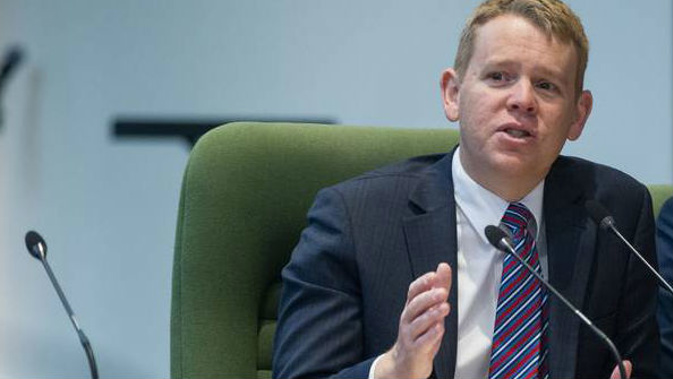
The Government has today begun a draft curriculum content for Aotearoa New Zealand's Histories, a compulsory subject to be taught in schools next year.
"The curriculum updates will come into effect in 2022. They will be gazetted during 2021 to give schools and kura time to prepare for implementing this," Minister of Education Chris Hipkins said.
Education Minister Chris Hipkins says having the resources and infrastructure in place to teach students about all aspects of New Zealand's past will be "a watershed moment".
"It will provide opportunities to learn about history from a local, regional and national perspective and will help students get a stronger sense of how the past has shaped who we are.
"Support from school communities is critical to get this exciting new subject up and running."
The Government announced in September 2019 that NZ history would be added to the curriculum, in response to growing calls from New Zealanders to know more about their country's history and identity.
The curriculum updates will come into effect next year and will be gazetted during 2021 to give schools and kura time to prepare for implementing them, Hipkins said.
A range of history subjects are already part of social sciences under the New Zealand curriculum and Tikanga ā Iwi in Te Marautanga o Aotearoa, and are compulsory from years 1 to 10.
Hipkins says although it is part of the local curriculum at every level, it will be optional from Year 11 onwards and will also be part of the NCEA curriculum.
The ministry says it will roll out a range of resources to support the teaching in schools and kura, which will include local curriculum guides and support through professional learning and development.
"There is wider work under way to ensure the curriculum is fit for purpose, now and in the future; and that it supports the wellbeing, identities, languages and cultures of all learners."
The themes agreed by Government in 2019 were:
- The arrival of Māori to Aotearoa New Zealand
- First encounters and early colonial history of Aotearoa New Zealand
- Te Tiriti o Waitangi / Treaty of Waitangi and its history
- Colonisation of, and immigration to, Aotearoa New Zealand, including the New Zealand Wars
- Evolving national identity of Aotearoa New Zealand in the late 19th and early 20th Centuries
- Aotearoa New Zealand's role in the Pacific
- Aotearoa New Zealand in the late 20th century and evolution of a national identity with cultural plurality
"In practice, learners across New Zealand will explore the stories that are unique to us," Hipkins said.
"In Te Tai Tokerau, for example, I know people will be interested in learning about the battle that took place in Ruapekapeka during the Northern Wars in the 1800s.
"In Waikato, ākonga may learn about the invasion of Waikato led by Governor George Grey and the implications this had for people living in the region.
"In Otago, they may delve deeper into the region's Māori and Chinese heritage and how it has helped shape the area into what it is today, while in Northland they may explore Māori histories and early Croatian stories.
"In Porirua, learners may explore the stories of Pacific migration to the area, including when and how people came to the city and the reasons for coming such as work and education. They could also explore how Pacific people have influenced the culture of Porirua."
Deputy Labour leader Kelvin Davis says "our history isn't about our [Māori] people, it belongs to all of us".
The minister says the neglect of NZ history is an "indictment", given that European history has been taught for years.
A lot needs to be done for children, he says, but something may also be developed for adults who were also deprived of NZ history.
"It's not something we've discussed, there's a resurgence from New Zealanders for wanting to know our history.
"It comes down to support of resources."
Iwi and hapū who carry the stories of their ancestors will be supported throughout the process to develop resources to determine a better learning experience.
Davis says for Māori this is "personal".
Historian Paul Moon says there may be difficulty in finding balance, as students and staff reflect on written history from the 19th century.
"It was written entirely by Pākehā," he says, and methods of recorded history for Māori were passed down through word of mouth.
"There has to be a role of oral history, they have to have that component."
While the news to support and teach NZ history comes as a delight, Moon says it can be challenging for historians and other staff who are yet to learn everything.
The Ministry of Education has been working with teachers, school leaders, school sector representatives, academics, representatives from the Māori, Pacific, migrants and disabled persons communities to draft curriculum content over the past year.
The content was tested in a small number of schools and kura in Term 4 last year and this year the ministry will seek input from all schools, kura and the public before the content is finalised.
The draft curriculum content will commence until May 31.
Take your Radio, Podcasts and Music with you









